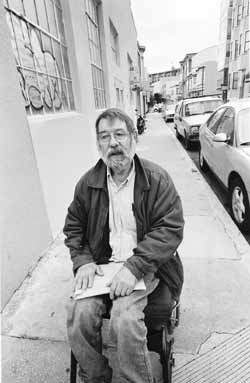|
Charles Houck Sept-Oct 2001 Societies are judged by how they treat the elderly and
the disabled “My European friends tell me that one way to judge a society is by how they treat the elderly and disabled. I think by that criteria, right here in America, we have a long way to go.” Houck has seen both sides of the world. He is presently in a wheelchair, and although he has a physical disability rather than a developmental one, he can sympathize with his clients. “When I was young I was very active, running around having a pretty good time. I played basketball, went hunting and fishing. Then when I was 15, I had polio quite severely. There were a few very bad years until I made the adjustment. Most of my adult life I was able to get along with just a cane, but about 10 years ago I broke my leg, and it never healed properly, so I ended up back in a chair. So I have seen what it is like to be normal, what it is to be moderately impaired, and what it is like to be severely impaired.” Now in his early 60s, Houck has seen society’s attitude toward people with disabilities change quite a bit. “I have been involved in the field of disabilities for 32 years. I think there is not as much concern in our society as there was during the golden age of the late 1960s and early 1970s, when there was more money available. One of the main improvements Houck has seen is in accessibility. “Ten years ago I had to be very careful when going around town, as I could go down a block and find there was no way to get off the curb,” he says. “Now ramps are pretty much available to me. And as I look around the city I see rows of disabled parking places, and what that says to me is that I am welcome. “When I was young, I was a crippled child. After that I became a handicapped person, and after that I became a disabled person. Finally I became an American with a disability. Now somehow being an American with a disability doesn’t sound as bad as being a crippled person, but I’m the same person. Somehow I’m supposed to feel better off as an American with a disability than as a crippled person–go figure.” {related articles} |
||||||

